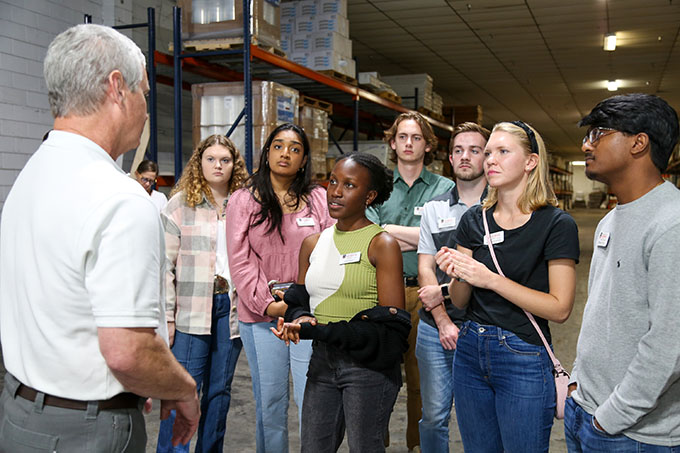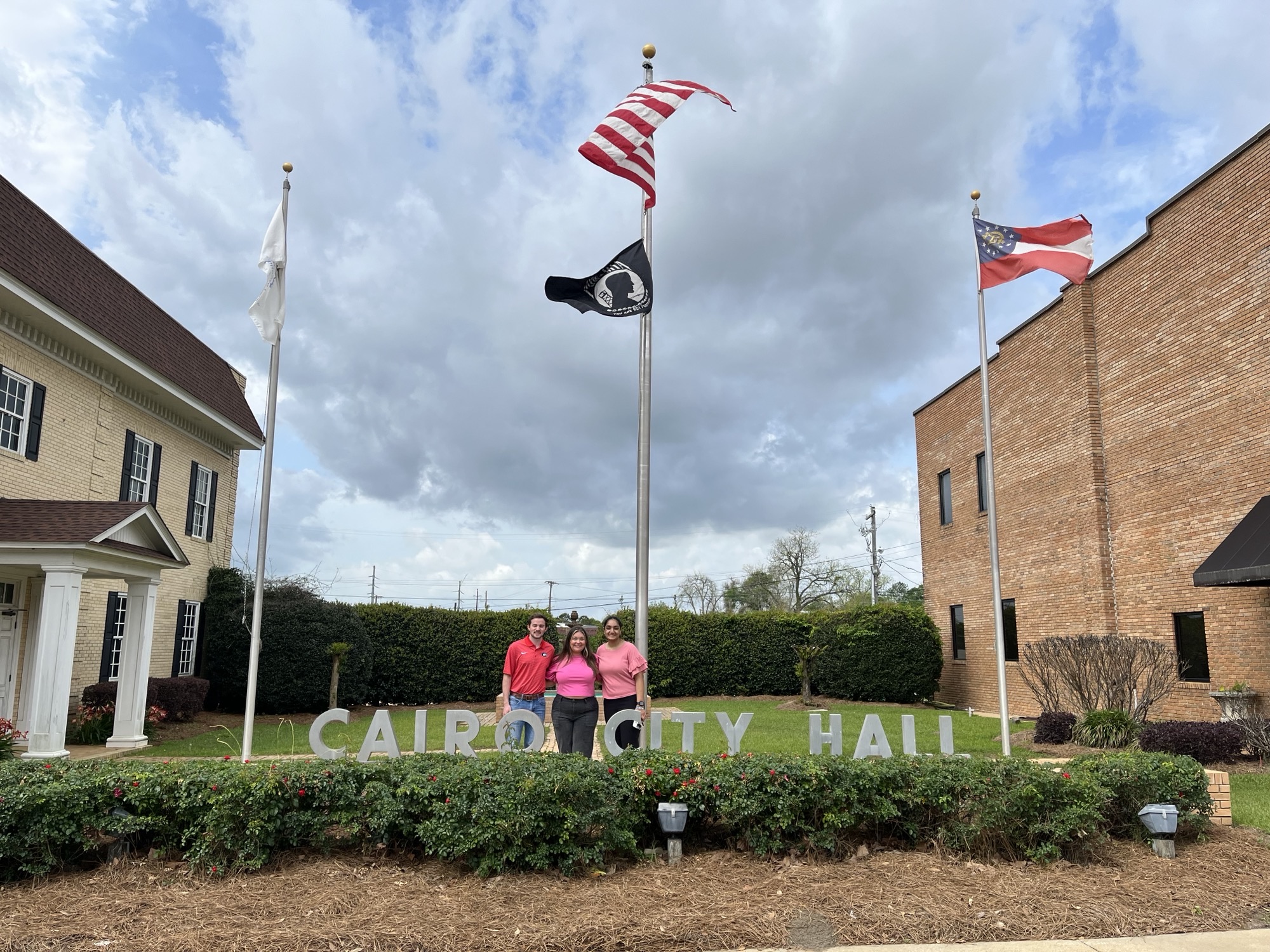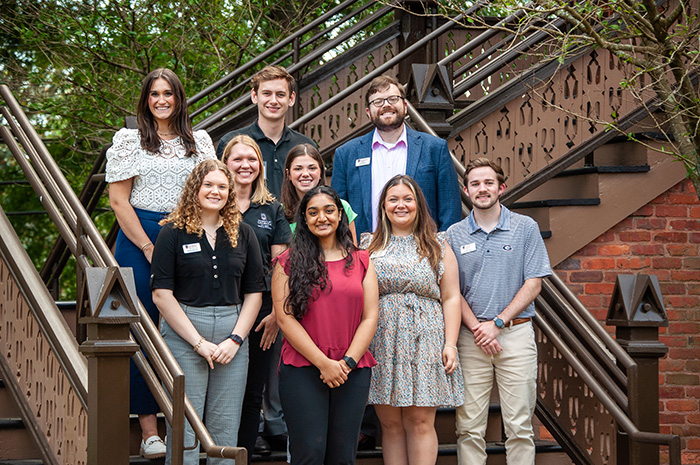UGA students who participated in the PROPEL Rural Scholars program are more attuned to the needs of rural Georgians and how government works thanks to the yearlong experiential learning opportunity at the University of Georgia’s Institute of Government.
The PROPEL Rural Scholars program is part of the larger PROPEL (Planning Rural Opportunities for Prosperity and Economic Leadership) effort, which provides rural communities with resources to create systems needed to support their economic and workforce development strategies.
Launched last fall with a generous $250,000 gift from the University of Georgia Foundation, the PROPEL Rural Scholars program is making a difference in rural communities.
Neal J. Quirk, chair of the UGA Foundation Board of Trustees, said the group was honored to support the university’s public service and outreach mission by investing in the program.
“The success of Georgia’s rural communities is critical to the prosperity of the entire state. We saw that giving today’s UGA students the chance to engage with rural community leaders was a powerful opportunity that we wanted to strongly support as a priority of the board,” he said.
Nine UGA students from across disciplines spent the first semester of the program learning about the academic underpinnings of rural and economic development and the second working on research projects specific to PROPEL communities.
The students were divided into three groups to focus on PROPEL communities in Appling, Grady and Pulaski counties. Research projects ranged from identifying relevant downtown ordinances, creating a marketing plan and developing tourism strategies.

PROPEL Rural Scholars meet with David Douglas, owner of Matrix Cabinets in Baxley, Georgia, as part of a tour of Appling County. Scholars, left to right, include Alyssa Ashurst, Shraddha Bandlamudi, Linet Namuli, Max White, Chase Reece, Hannah Willerson, Shreyas Kumar. (Photo by Shannah Montgomery)
“Many small communities simply don’t have the resources or the staff to work on certain projects. Research conducted by PROPEL Rural Scholars is educational for both parties, so it’s a win-win situation,” said Greg Wilson, who leads the program for the UGA Institute of Government. Alyssa Ashurst, an agribusiness major from Ellijay, was on the team that focused on a community brand promotion plan for The City of Hawkinsville and Pulaski County. She said working on a real-life project with community leaders was informative.
“I learned a lot about the dynamics of rural communities and decision-making. Looking at the challenges from a more academic level was a different viewpoint,” she said.
She also had a lesson on how to pivot when the steering committee requested ideas specifically for boosting its social media presence.
“That was a learning experience, but it made for a better project in the end,” Ashurst said, noting that the team was able to provide ideas for creating social media templates and a rotational calendar.
Max White, an atmospheric sciences and economics major from Cairo, researched ordinances for downtown Baxley, the county seat of Appling County.
“I learned a lot about Appling County and was able to have nuanced conversations with residents about their interests,” he said. “We were given freedom and range to explore topics that would be most helpful to downtown Baxley’s success.”

Three PROPEL Rural Scholars who have been working with the Grady PROPEL team traveled to Grady County to visit some local attractions.
For Baxley, that meant investigating business-friendly ordinances that align with community interests. The resulting project provided background on establishing an open container district as well as food truck ordinances.
Students also conceived a tourism plan for Grady County. The plan included an interactive community calendar, suggested platforms for tourism maps and community passports and proposed potential funding opportunities.
PROPEL is part of an overarching effort to help low-income rural cities and counties become more self-sufficient and prosperous.
Communities engaged in the two-year program include Appling County, Grady County, Pulaski County, Washington County and the Lower Chattahoochee Council of Governments (Clay, Quitman, Randolph and Stewart counties). Baldwin, Ben Hill and Burke counties joined the program in January.
The program’s quick expansion speaks to the need for support in rural communities, which is what attracted Reilly Grady to become a PROPEL Rural Scholar. The agribusiness major and environmental law minor from Dalton said such opportunities are vital to the university’s mission.
“As a land-grant university, we are responsible for making all of Georgia better, and if a rural community needs us we will be there,” she said. “It shows just how dedicated we are to improving the lives of Georgians every day.”
